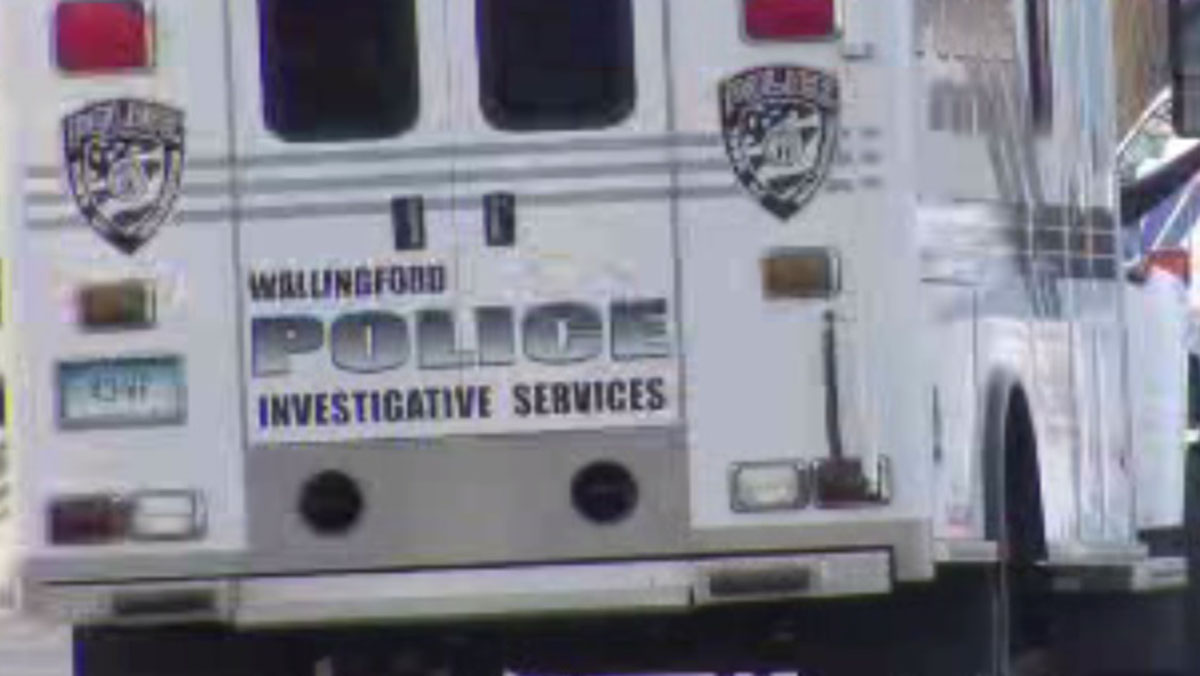At least 18 teens and young adults in Connecticut have shown symptoms of heart problems after receiving the Covid-19 vaccine, according to the Connecticut Department of Public Health. The Center for Disease Control and Prevention has yet to determine if the vaccines were the cause of the reported heart conditions but is investigating.
All 18 young people who were treated have now been released from the hospital, according to the state Department of Public Health. Among them is a high school student from Old Lyme.
“This was like the first time I thought I was going to die,” 16-year old Luke Celic said.
Celic received his second dose of the Pfizer vaccine on May 10. Three days later, he experienced a very scary occurrence.
329 medal events. 32 sports. Endless drama. Catch all the action at the Paris Olympics. Sign up for our free Olympics Headlines newsletter.
“My heart started beating really hard. My chest, the center of my chest, just started pounding with sharp pain,” he said.
Luke’s mom, a registered nurse, said he came to her in the middle of the night with crushing chest pains and palpitations.
“It was difficult for him to catch his breath. He was like panicking. We both didn’t know what was happening,” said Sarah Foley.
Local
Foley took her son to an urgent care center, where she said they weren’t sure what was happening.
“I said, ‘Trust me, he’s in a cardiac crisis. Something is really wrong with him.’ I thought he was dying on the way over there,” Foley said.
Luke was then airlifted to Yale New Haven Health. He spent three days there in the pediatric ICU and was diagnosed with acute Pericarditis and Myocarditis.
The connection between this and the Covid-19 vaccine, however, has yet to be definitely determined and is currently being evaluated by the CDC.
“They have not decided or announced that they think there is a relationship but they’re monitoring to see whether this is related to the vaccine,” Deidre Gifford, the acting commissioner of the state Department of Public Health, said.
At Connecticut Children’s, Dr. Juan Salazar said, it’s still too soon to know if these conditions are directly related to the vaccine, but they are paying attention.
“It is very important for us to pay attention to it. Report it. See if there’s any link or association. Study it,” Dr. Salazar said.
Salazar describes what has been seen so far as, “rare.”
Gifford agrees.
“Far, far less than 1% of vaccinated people have reported the side effects,” she said.
Gifford and Salazar both said the risk of getting Covid-19 and the health consequences associated with the virus outweigh the risk of heart complications.
“My recommendation to parents is to go ahead and get vaccinated,” Salazar saikd.
As for Luke’s mother, she said, it was important to come forward with this story to alert other parents about what to watch for.
“I hope it never happens to somebody else’s child, but if it does seek medical attention right away,” Foley said.
As for possibly pausing this vaccine for the younger age group, Gifford said, she doesn’t foresee that, but it depends on if more cases are reported and if a definitive association is identified.
What Is Myocarditis
Myocarditis is an inflammation of the heart muscle, according to the Mayo Clinic, which can affect your heart muscle and your heart's electrical system. They said it can reduce the heart's ability to pump and cause rapid or abnormal heart rhythms.
A viral infection usually causes myocarditis, but it can result from a reaction to a drug or be part of a more general inflammatory condition
Symptoms of Myocarditis
- In mild cases of myocarditis, common symptoms include:
- Chest pain
- Shortness of breath
- In more serious cases, symptoms can include:
- Rapid or abnormal heart rhythms
- Shortness of breath during rest or physical activity
- Fatigue
- Fluid retention
- Swelling of limbs
- Medical experts at Mayo Clinic say myocarditis can be fatal if not treated immediately.
- Heart failure, heart attack, stroke, and sudden cardiac death can occur in severe cases.
Signs of Myocarditis in Children
When children develop myocarditis, some signs and symptoms can include:
- Fever
- Fainting
- Difficulty in breathing
- Rapid breathing
- Rapid or abnormal heart rhythms
- Health experts urge both children and adults who may be experiencing any of these symptoms to immediately seek medical attention.
How Can Myocarditis Be Treated?
- In many cases of myocarditis, the inflamed heart condition can improve on its own.
- Mayo Clinic doctors say treatment focuses on the cause of the condition and symptoms, such as heart failure and shortness of breath.
- Doctors recommend getting a lot of rest and taking medication to help fight off the infection. Experts say that although antiviral medications are available, they are not proven effective in treatment for most cases of the heart condition.



